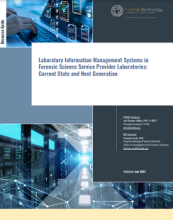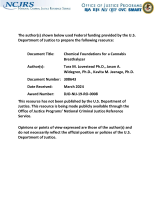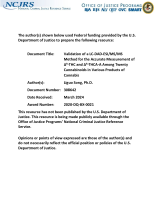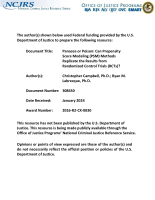Expert Forensic Communication: Best Practices and Common Pitfalls
A world in crisis and a 24/7 media cycle demands consistent, clear, and effective communication from organizations tasked with death investigation and related responsibilities. Two seasoned professionals share their experiences reaching diverse stakeholders and engaging the public in the vital work of the largest medical examiner’s office in the country.
This webinar was hosted by the NIJ Forensic Technology Center of Excellence on November 28, 2023.
See the YouTube Terms of Service and Google Privacy Policy







